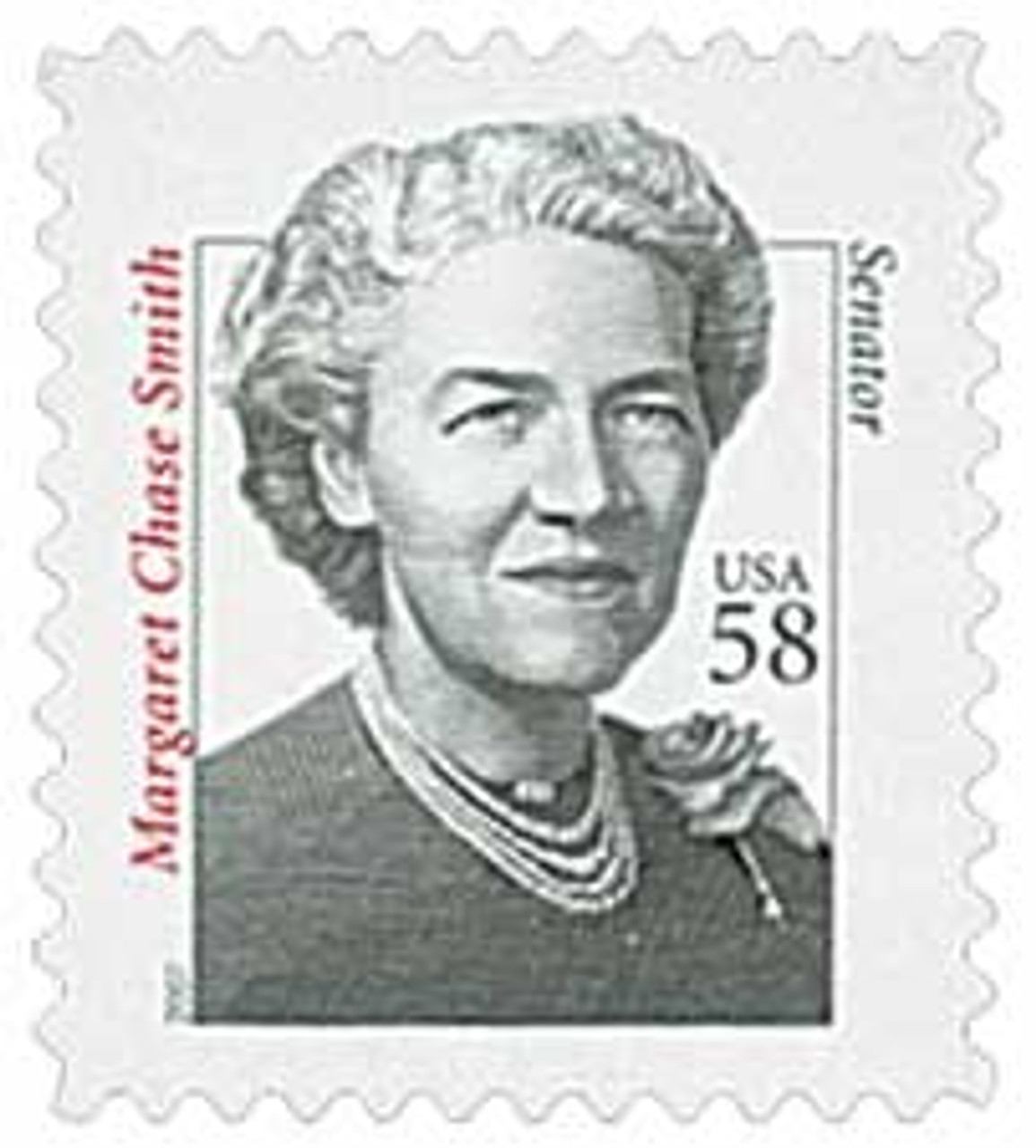
U.S. #3427
58¢ Margaret Chase Smith
Distinguished Americans Series
Issue Date: June 13, 2007
City: Washington, DC
Printed by: Ashton-Potter (USA) Ltd
Printing Method: Lithographed and engraved
Perforations: 11
Color: Red and black
Margaret Chase Smith (1897-1995) was one of the most successful politicians in Maine’s... more
U.S. #3427
58¢ Margaret Chase Smith
Distinguished Americans Series
Issue Date: June 13, 2007
City: Washington, DC
Printed by: Ashton-Potter (USA) Ltd
Printing Method: Lithographed and engraved
Perforations: 11
Color: Red and black
Margaret Chase Smith (1897-1995) was one of the most successful politicians in Maine’s history. Smith was the first woman to be elected to both the U.S. House and Senate, and the first woman from her state to serve in either.
A member of the Republican Party, Smith became the first woman to have her name entered into the nomination process for the U.S. Presidency at a major party’s national convention. (Smith lost to Barry Goldwater at the 1964 convention.)
At the time she left office, Smith was the longest-serving female senator in U.S. history. In 1989, President George H.W. Bush bestowed the Presidential Medal of Freedom upon Smith.

















